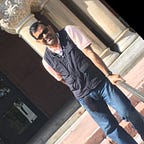Skills, Scholarship through the lens of ScrabbleTM
The other day we completed two intense games of ScrabbleTM. We had a good mix of seasoned players and players who are enthusiasts. As a ritual, we look at harvesting novel words at the end of the games and sharing with the participants. That day in the excitement of cracking a couple of BINGOS we missed the “word harvest ritual.” The feeling was we have done it and are improving our games, we can let this go for the day.
Like any other game the word game of ScrabbleTM is a game of skills. For the uninitiated, ScrabbleTM, a board-and-tile game in which two to four players compete in forming words with lettered tiles on a board of 15 x 15 grid of squares. The objective of ScrabbleTM is to score more points than one’s opponent(s). A player collects points by framing words on the game board using the lettered tiles, capitalizing on the cells which could multiply or augment the points. So, the winning strategy is to play words with high scoring letter combinations placed on the right cells as is possible.
What makes it a truly democratic game is that one need not be a logophile and a bibliophile to play the game. The barriers to entry are not intimidating, skills can be developed keeping the objective in mind, scholarship (acquired by being a word freak or a compulsive reader) is not mandatory.
So why are we bringing in ScrabbleTM as we are discussing Skills and Scholarship?
Future of Work is described by Gartner as “changes in how work will get done over the next decade, influenced by technological, generational, and social shifts.” The relentless focus is on skills and addressing the skills- gap, as companies are on the digital transformation journey. Skills relevant in the recent past are less relevant now. So, with these discussions has the significance of Scholarship taken a back seat?
Dropping out of school (akin to scholarship) is often touted as a virtue, ably accentuated by examples of the brilliant technologists like of Gates, Ellison, and Zuckerberg. This has been further reinforced by the influential tweets from the Tesla chief Elon Musk on the subject.
Is it a fact that greatness and gold-plated degrees do not always go together? For the millennial job seekers this is sending confusing signals and conflicting messages.
The question is do skills matter more than the scholarship. Does a college degree, the most likely surrogate for scholarship mean anything in today’s world?
Let me go back to the world of ScrabbleTM to get some answers.
Who gets drawn into this enticing word game?
Anyone with a way with words and phrases, with a semblance of appreciation of a friendly challenge, and interested in a fun filled learning session would gravitate to this game.
Would the above attributes come through scholarship? Generally, yes! But getting to fathom how to build the words within the constraints of the available tiles and the space on the board is the skill to be honed. A smart skills-based play would help to garner the maximum points.
Big words make the impact, create an impression, so does knowledge of anagrams, much like scholarship. But when it comes to scoring points; right letters and their judicious placement yields of the points, much like the skills honed through practice.
The feverish unfolding of Future of Work is getting offset by this nagging question — could we leverage solely skills? Here is the conundrum.
As said before, a college degree is supposed to be the surrogate for scholarship. A degree is nothing but the certified documentation of the skills which the individual is supposed to possess. A degree can help earn a job, but it cannot help growth without the work specific skills. Drawing parallels here, having a fine vocabulary does not guarantee that one would be a winner in the game of ScrabbleTM. A reasonable vocabulary coupled with a situational understanding of the game and the appreciation of the constraints laid out would make one a winner.
Increasingly we hear the mantra -Skills, not scholarship, matters. But the holistic advice which is getting blurred-out is skills attained are not at the exclusion of scholarship.
Honing the right set of skills should be the focus. Skills can be developed through non-traditional degrees, certifications, and on-the-job training; can we call this as “new -age scholarship”? This is creating a new set of workforces called the “New-Collar” workers.
These new age workers are expected to bring in critical thinking skills, computing and programming skills, communication skills and the ability to deal with ambiguity. These would stand a good stead to address the not so usual yet rapidly growing needs for the new kinds of digital jobs.
For example, developing key skills like communication when added to scientific research could have compounding effect in amplification of the study, though effective presentation of ideas.
While formal education of the traditional kind could be falling behind, the fact is scholarship in a form developed though informal or non-traditional means is essential to take that first step on the ladder of skills development.
Real skills can be developed only when learning is comprehensible and transparent, much like the game of ScrabbleTM. One plays because one has a sense with words, and one scores because one can frame and create words in the game’s context. The widely acknowledged German Apprenticeship program of a dual study and training could be a way to emulate.
Let us accept the new ways of Future of Work and make judicious changes in our thoughts and actions as we develop as professionals and groom the next generation of professionals.
How true was Mark Twain who said, “To succeed in life you need two things: ignorance and confidence”? Taking the liberty here with my view of this visionary quote: ignorance is dispelled through scholarship and confidence is gained through skills.
Somjit Amrit
Your Avid Scrabbler
